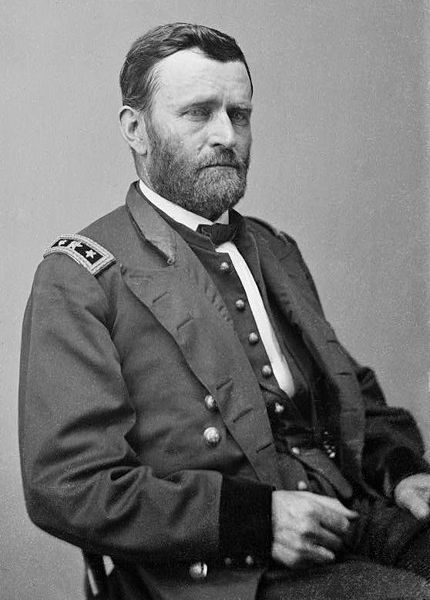Grant the Butcher?

Although saddled with the reputation of “Grant the Butcher,” Ulysses S. Grant was hardly unmoved by the butchery around him. An incident in the Wilderness, relayed by Grant’s chief of staff, John Rawlins, to biographer James Wilson (Federal cavalryman and friend of Grant), speaks volumes.
On the evening of May 6, Grant received news about the attack on Sedgwick’s VI Corps, holding the Federal right flank. “[A]fter he had asked such questions and given such orders as the emergency seemed to call for,” Wilson wrote, “he withdrew to his tent and, throwing himself face downward on his cot, instead of going to sleep, gave vent to his feelings in a way which left no room to doubt that he was deeply moved.”
Rawlins and other witnesses “had been with [Grant] in every battle from the beginning of his career, and had never before seen him show the slightest apprehension or sense of danger ; but on that memorable night in the Wilderness it was much more than personal danger which confronted him. No one knew better than he that he was face to face with destiny, and there was no doubt in their minds that he realized it fully and understood perfectly that retreat from that field meant a great calamity to his country as well as to himself. That he did not show the stolidity that has been attributed to him in that emergency but fully realized its importance is greatly to his credit.”
The “stolidity” Wilson referred to was an account of the evening written by Grant’s aid, Horace Porter. When news of the attack came, Porter claimed that he looked in Grant’s tent “and found him sleeping as soundly and peacefully as an infant.” When Porter relayed news of the attack, he claimed Grant’s “military instincts convinced him that it was a gross exaggeration, and as he had already made every provision for meeting any renewed attempts against the right, he turned over in his bed, and immediately went to sleep again.”
Wilson takes issue with Porter’s account: “Many misleading accounts have been given to the world in regard to Grant’s bearing when the news of [the] disaster and capture reached him. He has been reported as having remained unmoved and unshaken throughout the excitement which followed.”
But Porter himself offers an account of his own that underscores Grant’s aversion to butchery. During a meeting with Meade during the battle, “[it] was noticed that he was visibly affected by his proximity to the wounded, and especially by the sight of blood. He would turn his face away from such scenes, and show by the expression of his countenance, and sometimes by a pause in his conversation, that he felt most keenly the painful spectacle presented by the field of battle. Some reference was made to the subject in camp that evening, and the general said: ‘I cannot bear the sight of suffering.’”
I have always had a probably with these excessive sobriquets. It is a slippery slope to judge the leaders on either side of the civil war with this kind of over-the-top descriptions. Judging these men, thrust into the most difficult circumstances imaginable, through todays’ rose colored glasses is a useless exercise. Try to imagine the difficulties they faced and the limited choices they had to exercise when confronting the enemy and then ask what you would have done. Certainly at the time of the war timidity was not a tactic admired by anyone, including Presidents, Cabinet members, congressmen and the general public. Toe-to-toe fighting was the order of the day and too many people died; but not because generals deliberately handled men recklessly without compassion for them. I can scarcely imagine the burden and anguish they experienced in the wake of these horrific battles. Enough already of the “butcher’ name-calling.
You have summed it up well it’s difficult to point the finger and whose to blame in many shocking battles. But did many officers go overboard. Your thoughts on the Fort Pillow massacre in which up to around 277-295 African American”a were slaughtered after surrender.